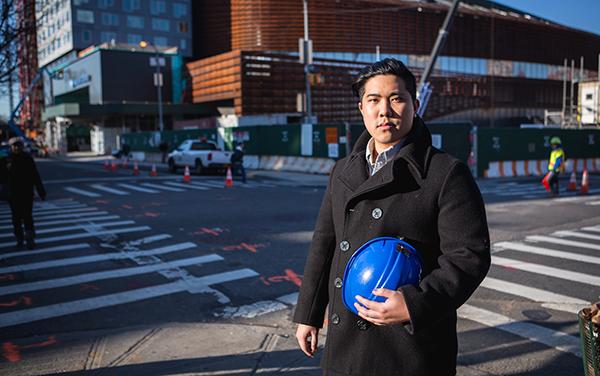Tandon Team Makes Hyperloop Possible

Current Tandon Senior, Darren Yee, is leading the NYU team in SpaceX’s Hyperloop design competition.
February 8, 2016
Tandon students are developing a way to move at the speed of sound. Six Tandon students are competing to design a Hyperloop — an extremely high speed method of transportation — and are now advancing to the final round of the SpaceX Hyperloop Pod Competition in California.
Hyperloop is a new mode of transportation proposed by Elon Musk, the founder of the high-end electric car brand Tesla known for privatizing the space industry by founding SpaceX. Musk proposed that Hyperloop would essentially work as a giant, airless tube that would transport pods containing people and freight at hundreds of miles per hour. He proposed the concept as an open-source project, meaning that engineers from all over the world can develop the technology.
SpaceX is hosting a year-long competition for college students that started in June 2015. In January, teams submitted a final proposal package, and 115 teams were invited to an in-person design weekend at Texas A&M University in College Station, Texas. The teams each gave a presentation and had a booth where they could explore other designs.
Darren Yee, Tandon senior and leader of the project, named Slate, said although their presentation was not flashy like many others groups’, it is modified for a wide variety of clients. His team envisions their design to start off being used to transport freight, eventually carrying passengers. In addition, Yee said this transition from carrying freight to passengers will alleviate some safety concerns associated with the new technology.
“To say that our design is unique would be an understatement,” Yee said. “With any sort of new technology there’s a significant amount of safety concerns, and freight would be a great opportunity to show the public that Hyperloop is safe and economically viable.”
Chris Lysiuk, a Tandon junior who is working on the business side of the project, echoed that sentiment.
“With a project like this it’s easy for one company to monopolize the system, but our approach to make a modular sled for freight allows for collaboration and innovation — you can call upon other companies to make passenger variants,” Lysiuk said.
For the remainder of this semester, the team will be working on physically constructing their pod at Tandon. They’ve received a grant from NYU, but are also working on securing outside sponsorships.
Dean of Engineering Katepalli Sreenivasan said Tandon faculty will be working closely with the Slate team throughout the spring, and he looks forward to watching the team advance in the competition.
“The fact that they are still in the competition says something about their enthusiasm, hard work and creativity,” Sreenivasan said. “We will work more closely with the students to see how else we could support them so as to enable to do well in the next round.”
The team will transport their pod to California for the final competition on an unspecified date this summer, where they will try out their pod on a test track.
A version of this article appeared in the Feb. 8 print edition. Email Jeffrey Kopp at [email protected].











































































































































